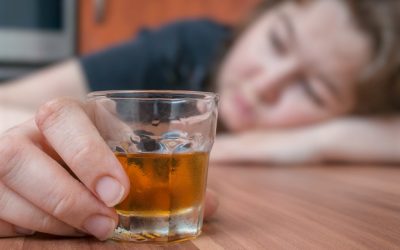It’s important to note that even moderate consumption of any alcohol – including wine and beer – can increase blood pressure; this is particularly true for people who are more sensitive to alcohol’s effects. It is always imperative to consult with a healthcare provider for personalized advice. It’s important to note that even moderate consumption of any alcohol – including wine and http://www.rabbo.it/2022/04/27/how-to-stay-motivated-throughout-the-recovery-2/ beer – can increase blood pressure; this is particularly true for people who are more sensitive to alcohol’s effects. Another non-pharmacological prevention and treatment of alcohol-induced hypertension is physical conditioning or exercise training. There is a physiological basis for effect of physical conditioning on chronic alcohol-induced hypertension in a rat model.
Medical
Making healthier choices can significantly impact your blood pressure and overall well-being. Drinking alcohol regularly can increase your risk of hypertension (high blood pressure). In the short term, a small amount of alcohol may not affect your blood pressure, but a large amount can raise it.
Dealing with missing data
Talk to your doctor honestly about your drinking, even if it’s an uncomfortable topic. Drinking too much alcohol — beer, wine, or liquor — can raise the force your blood exerts on your arteries. As with many substances, the poison is in the dose, which means — it depends on how much, your size, gender and age. This research was a dose-response meta-analysis of seven different nonexperimental cohort studies. Researchers looked at data from over 19,500 participants, allowing for vast information collection.

Does Alcohol Increase Blood Pressure?
Early general population studies suggested a possible association of alcohol consumption with left ventricular hypertrophy, that was more prominent in men than women, and appeared to vary according to the beverage type 61. The same association was subsequently reported in a rural Chinese population in whom Yang et al. observed that left ventricular mass was directly related to the amount and frequency of alcohol consumption 62. It is important to point out that, in the Yang study, this relationship was also present in a subset of patients with hypertension and was independent of blood pressure levels. A direct relationship between alcohol intake and left ventricular hypertrophy was also reported in Japanese hypertensive patients by Seki et al., and was independent from blood pressure levels and metabolic variables 63. Interestingly, this study pointed to the possibility that the relationship between alcohol and hypertension could be somehow related to uric acid.
Unit of analysis issues
Yes, reducing alcohol consumption can help lower blood pressure, particularly if you’ve been drinking heavily or regularly. Research shows that individuals who reduce their alcohol intake to recommended levels (one drink a day for women and two for men) often see a reduction in both their systolic and diastolic blood pressure readings. Cutting back on alcohol also reduces the risk of related health issues, such as stroke, heart attack, and heart failure. This effect cannot explain the association of the consumption of alcoholic beverages with the incidence of hypertension.
- Remember, it’s essential to drink responsibly and be mindful of your alcohol intake.
- It’s even better to stop drinking alcohol because even one drink daily can significantly increase your blood pressure.
- Comprehensive assessments guide tailored treatment plans, which commonly include medication management for mental health symptoms, behavioral therapy to address maladaptive patterns, and support services like mutual aid groups.
- Having higher levels of catecholamines causes the body to excrete less fluid through urine.
If taking lisinopril makes you feel dizzy or lightheaded, you should not combine it with alcohol. That’s because lisinopril and alcohol interaction can increase the blood pressure-lowering effect of this medication even more and could cause you to faint. It’s a good rule of thumb to be alcohol affect on blood pressure careful about alcohol consumption while you’re taking any prescription drug — especially until you know exactly how they’ll interact — and lisinopril is no different.

This dilation can increase the pressure in your arteries and raise your overall blood pressure, which can have a negative effect on certain blood pressure medications. As previously mentioned, constant exposure to stressors can stimulate the body’s ‘fight or flight’ response; this leads to increased heart rate and constricted blood vessels, thereby raising blood pressure. Prolonged stress combined with habitual alcohol use can exacerbate these effects. This causes a persistent increase in blood pressure that may have detrimental effects on an individual’s overall cardiovascular health. As previously mentioned, constant exposure to stressors can stimulate the body’s ‘fight or flight’ response; this leads Alcohol Use Disorder to increased heart rate and constricted blood vessels, thereby raising blood pressure. This causes a persistent increase in blood pressure that may have detrimental effects on an individual’s overall cardiovascular health.
#1: Increased Severity of Side Effects
The information contained in this article is to educate, spread awareness in relation to hypertension and other diseases to the public at large. The contents of this article are created and developed by BPinControl.in through its authors, which has necessary, authorisations, license, approvals, permits etc to allow usage of this articles on The Website. The views and opinions expressed in this article are views, opinions of the respective authors and are independently endorsed by doctors. The Website shall not be held responsible or liable for any consequence arising out of reliance on the information provided in the article. While drinking at home, use an app to keep track of how much alcohol you are consuming. You are less likely to consume red wine in excess when you eat food with it.
Sympathetic nervous system in alcohol-induced hypertension
Considered publications were full-text articles, with original human or animal data for the effect of changes in alcohol intake on blood pressure levels, and meta-analyses and reviews on this same subject. Retrieved the articles that were reviewed and discussed them with L.A.S., as a fourth reviewer, for subsequent article selection. Only studies rated with moderate-to-high GRADE certainty ratings were considered.
High blood pressure, or hypertension, is a leading cause of heart attack, stroke, and other cardiovascular diseases, and the relationship between blood pressure and alcohol consumption is a key factor to consider. Whether you drink alcohol occasionally, regularly, or engage in binge drinking, understanding the impact of blood pressure alcohol levels is critical for your overall health. The evidence from investigations with various designs converge regarding the acute biphasic effect of ethanol on BP and the risk of chronic consumption on the incidence of hypertension, particularly for Blacks. These effects do not support the putative cardioprotective effect of consumption of low-to-moderate amounts of alcoholic beverages. Mechanisms of chronic BP increase and the demonstration of long-term benefits of reducing alcohol intake as a means to treat hypertension remain open questions. Heavy and consistent drinking may lead to long-term blood pressure problems.